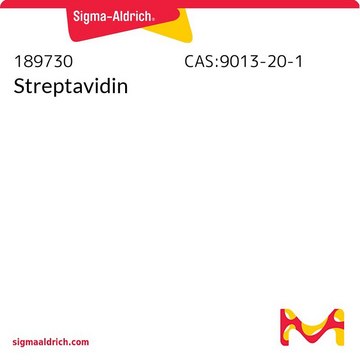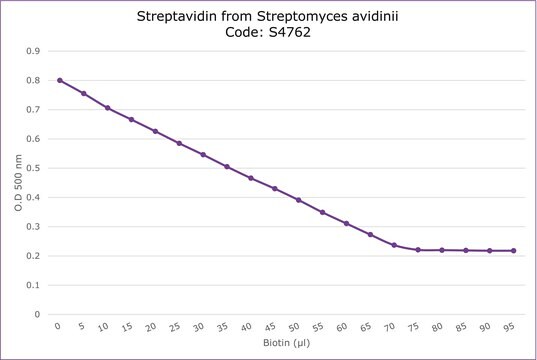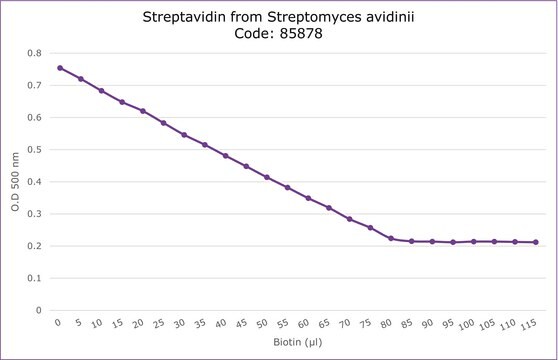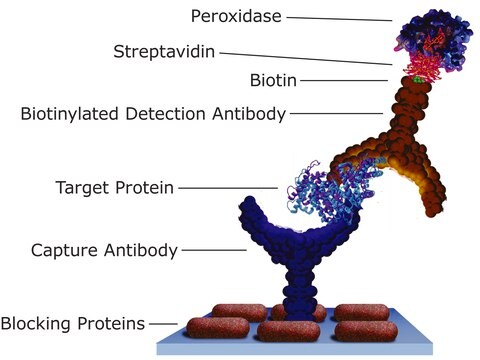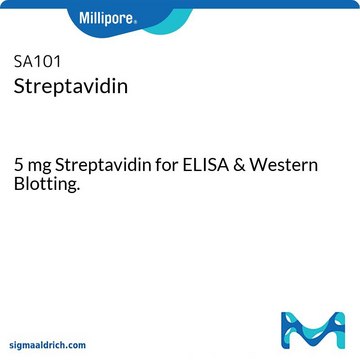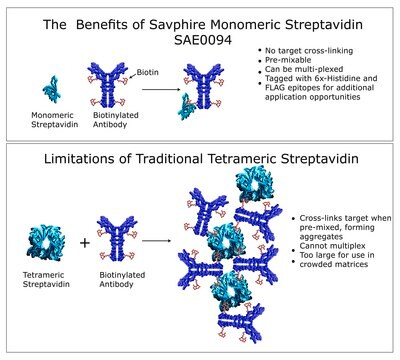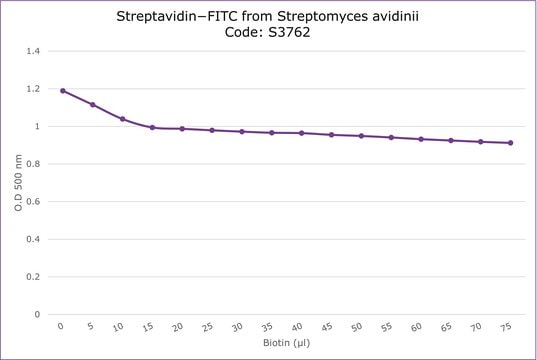02744
Atto 655-Streptavidin
BioReagent, suitable for fluorescence
Synonym(s):
Streptavidin-Atto 655
Sign Into View Organizational & Contract Pricing
All Photos(1)
About This Item
UNSPSC Code:
12352116
NACRES:
NA.32
Recommended Products
product line
BioReagent
Quality Level
form
powder
manufacturer/tradename
ATTO-TEC GmbH
solubility
DMF: soluble
DMSO: soluble
acetonitrile: soluble
fluorescence
λex 655 nm; λem 680 nm in 0.1 M phosphate pH 7.0
suitability
suitable for fluorescence
suitable for gel electrophoresis
storage temp.
−20°C
Application
Atto 655 is a fluorescent label with high molecular absorption (125.000) and quantum yield (0.30), as well as sufficient stoke′s shift (excitation maximum 663 nm, emission maximum 684 nm). There is very little cis-trans-isomerisation, which limits brightness and reproducibility for many other dyes. Atto 655 has been coupled to streptavidin to enable various types of assays based on the specific affinity of biotin to streptavidin. Streptavidin conjugates are used as secondary detection reagents in histochemical applications, flow cytometry, microarrays, blot analysis and immunoassays.
Analysis Note
free of unconjugated dye
Legal Information
This product is for Research use only. In case of intended commercialization, please contact the IP-holder (ATTO-TEC GmbH, Germany) for licensing.
Storage Class Code
11 - Combustible Solids
WGK
WGK 3
Flash Point(F)
Not applicable
Flash Point(C)
Not applicable
Personal Protective Equipment
dust mask type N95 (US), Eyeshields, Gloves
Choose from one of the most recent versions:
Already Own This Product?
Find documentation for the products that you have recently purchased in the Document Library.
Customers Also Viewed
Breaking the Diffraction Barrier in Fluorescence Microscopy by Optical Shelving.
Bretschneider, S.; Eggeling, Chr.; Hell, S. W.
Physical Review Letters, 98(21) (2007)
Simple buffers for 3D STORM microscopy.
van de Linde, S.; Kasper, R.; Heilemann, M.; Sauer, M.
Applied Physics B: Lasers and Optics, 93(4), 725-731 (2008)
Triple-Color Super-Resolution Imaging of Live Cells. Resolving Submicroscopic Receptor Organization in the Plasma Membrane.
Wilmes, S.; Staufenbiel, M.; Lisse, D.; Richter, Ch. P.; Beutel, O.; Busch, K. B. et al.
Angewandte Chemie (International Edition in English), 124(20), 4952-4955 (2012)
Nicolas Olivier et al.
Biomedical optics express, 4(6), 885-899 (2013-06-14)
3D STORM is one of the leading methods for super-resolution imaging, with resolution down to 10 nm in the lateral direction, and 30-50 nm in the axial direction. However, there is one important requirement to perform this type of imaging:
PALM and STORM. Unlocking live-cell super-resolution.
Henriques, R.; Griffiths, C.; Hesper Rego, E.; Mhlanga, Musa M.
Biopolymers, 95(5), 322-331 (2011)
Articles
Fluorescent Labeling of Peptides
Our team of scientists has experience in all areas of research including Life Science, Material Science, Chemical Synthesis, Chromatography, Analytical and many others.
Contact Technical Service